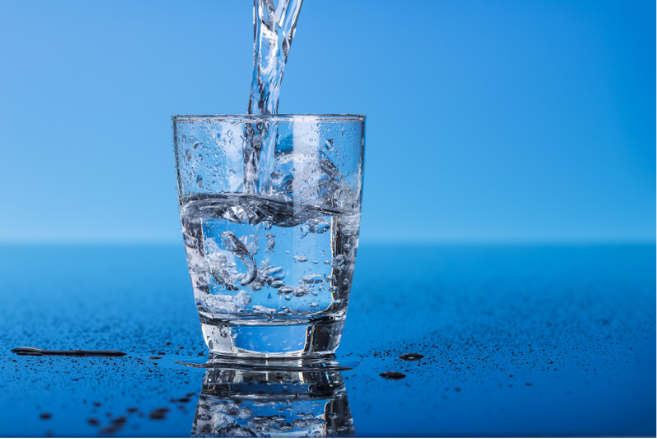Enhance Your Home's Water Quality with a Water Purification System
Why a Water Purification System Is Necessary for Tidy, Safe Water
Access to tidy, safe water is an essential human right and a foundation of public wellness. A water filtration system stands as an important solution to mitigate these dangers, ensuring that communities and people can access secure drinking water.
Significance of Clean Water
Accessibility to tidy water is a fundamental necessity for human health and wellness and wellness. Contaminated water can lead to serious health and wellness concerns, including intestinal health problems, cholera, and dysentery, specifically in susceptible populations such as kids and the elderly.
In addition, tidy water is vital for cleanliness and hygiene methods, which are important in protecting against the spread of contagious diseases. Appropriate water supports appropriate cleanliness facilities, promoting a healthier atmosphere. Additionally, access to risk-free water influences socioeconomic elements, as it allows areas to involve in commercial and farming activities, inevitably adding to economic development.
In numerous areas, the lack of tidy water intensifies hardship and inequality, additional preventing progress toward sustainable development goals. Therefore, making certain accessibility to clean water is not only a public health crucial but also a cornerstone for social equity and financial development. Efforts to boost water high quality and framework have significant advantages, cultivating much healthier neighborhoods and enhancing top quality of life.

Usual Contaminants in Water
Making sure the schedule of tidy water is undermined by numerous pollutants that can endanger its safety and high quality. The existence of microorganisms, such as bloodsuckers, viruses, and bacteria, poses substantial health dangers, especially in locations doing not have sufficient sanitation. These microbes can cause waterborne conditions, leading to severe illness or perhaps death.
Chemical contaminants additionally provide a crucial problem. Hefty steels, including mercury, arsenic, and lead, typically get in water materials through industrial discharges or corroded pipes. These compounds can build up in the body over time, leading to lasting health and wellness issues such as neurological damage and developing disorders.
In addition, agricultural drainage presents chemicals and plant foods right into water systems, which can interrupt ecological communities and adversely effect human wellness. Nitrates, typically found in fertilizers, can create severe problems like methemoglobinemia, especially in infants.
Advantages of Water Purification Systems
Identifying the crucial demand for risk-free drinking water, water purification systems use a myriad of advantages that improve public health and wellness and ecological sustainability. Mostly, these systems successfully get rid of harmful contaminants, including bacteria, viruses, heavy metals, and chemicals, making certain that the water taken in is without virus and contaminants. This reduction in impurities considerably decreases the risk of waterborne conditions, promoting general community health.
In enhancement to health advantages, water filtration systems add to environmental sustainability by lowering dependence on mineral water, which typically produces extreme plastic waste. By utilizing a purification system, households can decrease their carbon footprint and add to a more lasting ecological community. These systems can improve the preference and odor of water, making it more tasty for daily intake.

Different Sorts Of Filtration Techniques

One common method is reverse osmosis, which makes use of a semi-permeable membrane layer to separate water from dissolved contaminants and solids. This process efficiently lowers contaminations, including heavy steels and chemicals. One more extensively utilized method is ultraviolet (UV) disinfection, which employs UV light to neutralize bacteria and infections, rendering them harmless without using chemicals.
Turned on carbon filtering is an additional prominent strategy, making use of carbon to adsorb natural compounds, chlorine, and unpleasant smells, boosting preference and smell top quality. Purification, a process that entails boiling water and condensing the steam, successfully eliminates impurities and minerals yet may call for even more energy compared to various other techniques.
Ion exchange is usually utilized to soften water by replacing calcium and magnesium ions with salt or potassium ions. Each approach has its benefits and limitations, making it important to recognize their functionalities and efficiency check my reference in addressing specific water top quality issues - Water Purification System. Ultimately, picking the suitable filtration technique is critical for guaranteeing tidy and safe alcohol consumption water
Picking the Right System
Selecting a suitable water purification system needs careful consideration of numerous variables, including the certain contaminants existing in the supply of water, the volume of water required, and the preferred filtration technique. It is crucial to perform a water high quality test to identify contaminants such as bacteria, hefty metals, or chemical pollutants. This details will guide you in choosing a system that efficiently targets those details contaminations.
Following, evaluate your house's daily water usage to establish the system's capacity. Systems are readily available in numerous dimensions, from point-of-use filters for alcohol consumption water to whole-house devices that purify all water entering your home.
Moreover, think about the filtration approach that best fits your demands. For example, reverse osmosis is extremely reliable for removing a variety of pollutants, while UV filtration is exceptional for removing bacteria.
Verdict
In conclusion, the implementation of water filtration systems is vital for making sure access to clean and secure water. By comprehending the significance of tidy water and the benefits of various filtration methods, areas can make educated decisions to guard their health and advertise socioeconomic stability.
Recognizing the critical need for more tips here risk-free drinking water, water filtration systems offer a myriad of advantages that enhance public health and wellness and environmental sustainability.In enhancement to health advantages, water filtration systems contribute to ecological sustainability by decreasing dependence on bottled water, which frequently creates extreme plastic waste. Inevitably, the adoption of water filtration systems is an aggressive step toward ensuring clean, secure water for future generations while protecting public wellness and the environment.
Choosing an ideal water purification system requires cautious factor to consider of various aspects, consisting of the specific pollutants existing in the water supply, the quantity of water needed, and the preferred filtration technique.In verdict, the execution of water purification systems is vital for ensuring access to secure and tidy water.